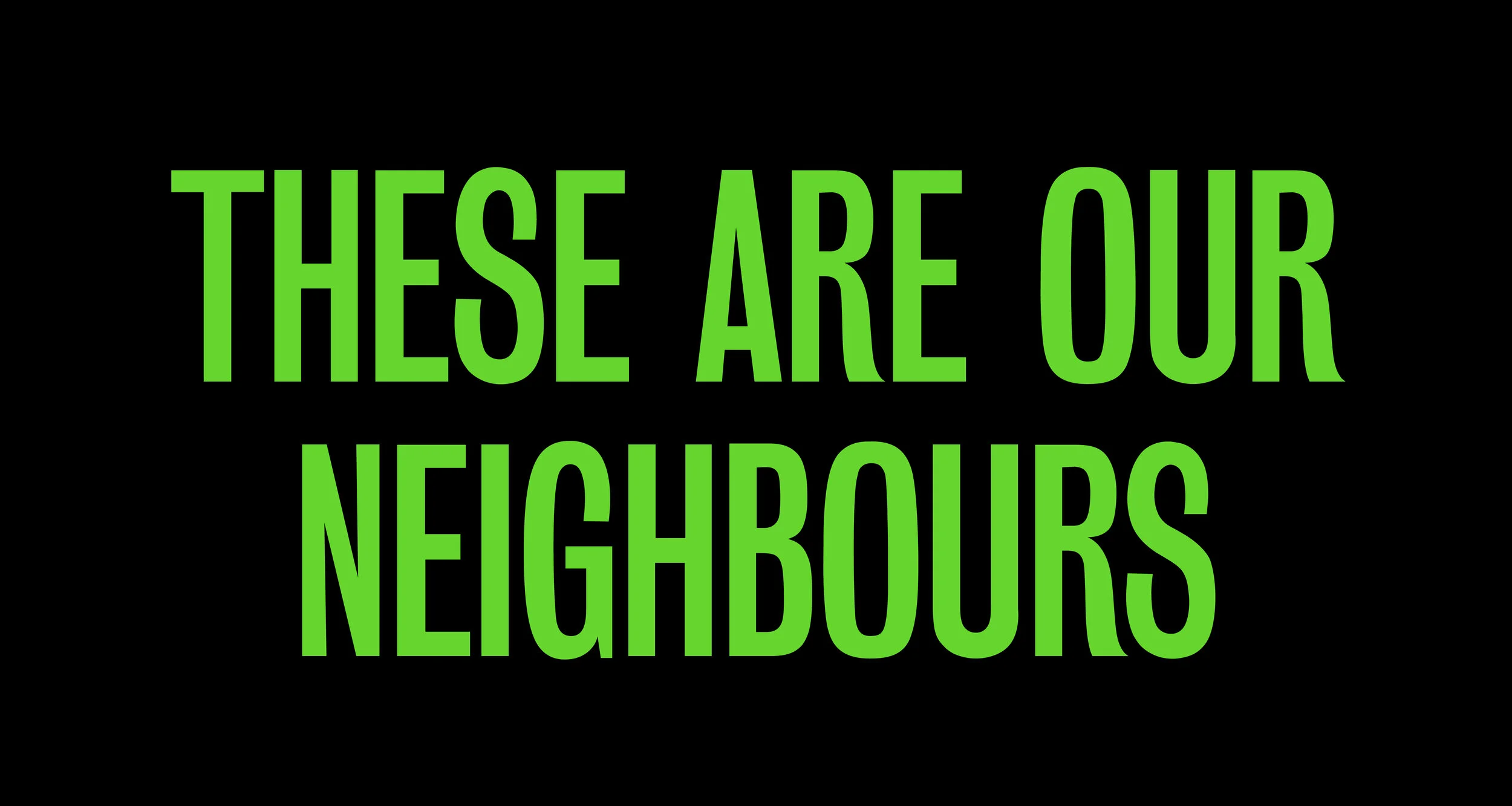Beyond Borders
Words by Leah Cowan
“We are here for our neighbours. We are standing for each other. We are not allowing brutality in our streets, where people come and bundle you in the back of a van [...] we will stay until the end and until these guys are released!”
These words were spoken with calm clarity through a megaphone at a critical solidarity action in Glasgow’s south side during Eid celebrations last month. UK Border Agency officers had conducted a dawn raid on Kenmure Street, and thick crowds gathered to block the van from leaving, with protestors chanting, “these are our neighbours, let them go!”.
Protests on Kenmure Street, Glasgow, May 2021.
The attempted detention (and we can only assume deportation) of two men, in direct contradiction to the wishes of their friends and neighbours, is a reminder that borders exist in brutal opposition to bonds of solidarity and community. The resistance by the residents and allies of Kenmure Street encourages us to rethink and reframe the supposed inevitability of border controls and to continue to build strategies that can help us dismantle borders altogether.
The driving locomotive behind the struggle to break down borders is that they are inherently unjust. Borders are semi-permeable barriers that block some people from crossing them and allow others to glide through freely. This is because structures of oppression, in the combined shape of classism, racism, ableism, homophobia and transphobia, throw up obstacles to border-crossing for some groups of people and enable other groups to vault with ease over the barriers of immigration restrictions.
Protests on Kenmure Street, Glasgow, May 2021.
For example, the 1971 Immigration Act scrapped access routes for many people to come and live freely in the UK. After this Act, the “right of abode” in the UK could only be claimed by people with a prior link to the UK, such as a parent or grandparent born here; back in the 1970s, that basically meant only white people.
Fast forward to 2021 and, intersecting with the white supremacy inherent in border controls, working-class people who have lived in the country for decades are deported for minor acts of non-violent law-breaking or for being street homeless, as became evident through the government’s shady Operation Nexus scheme which largely targeted Eastern European people who were rough sleeping. Meanwhile, millionaires can get a visa to come to the UK if they are willing to invest a chunk of their cash in the UK. Clearly, there is nothing fair about the border regime.
“Borders exist in brutal opposition to bonds of solidarity and community.”
Knowing then that borders are forged in the fires of inequality, it perhaps comes as no surprise that they work to protect and elevate ways of “doing” and “being” that support the capitalist status quo. Borders are not just semi-secure membranes; they also set the tone of social relations within the bordered nation. For example, one of capitalism’s most favoured economic units is the heterosexual, monogamous nuclear family. Extended families made up of chosen members embodying a spectrum of sexualities, and gender expressions are less useful under capitalism; children raised more communally are not “owned” by one or two individuals struggling to shore up wealth for their small unit. Describing her vision for a post-capitalist and post-‘family’ society, Sophie Lewis, writer of Full Surrogacy Now: Feminism Against Family, references an idea popularised by the Sisterhood of Black Single Mothers: “[children] will not belong to the patriarchy. They will not belong to us either. They will belong only to themselves.”
“Border abolition must be about a wholesale dismantling of oppressive structures such as racism, classism, ableism, transphobia, homophobia and misogyny.”
The border’s opposition to queer and non-binary social bonds is evident in the fact that to secure a UK visa as someone’s spouse, the applicant has to be engaged, married or civilly partnered, or have been living together with that person in a marriage-type set-up. Primarily, the state uses this visa restriction to ensure anyone coming to the UK will reproduce the type of social relations that are in step with the state’s vision for itself. In addition, in countries where people are still subject to Britain’s colonial-era anti-gay laws, such as Jamaica, Kenya, Nigeria, and Uganda, it is incredibly difficult for a queer couple to live together in a manner akin to marriage and to be able to evidence that cohabitation. The UK’s border restrictions, therefore, specify which types of relations (and from which liberal states) it is willing to recognise and encourage.
Through considering deeply what borders seek to do to us, we arrive at the realisation that the fight for border abolition must be about a wholesale dismantling of oppressive structures such as racism, classism, ableism, transphobia, homophobia and misogyny.
Back in Glasgow, after a seven-hour standoff, border enforcement gave in to the crowds’ demands, and the two men were released. This significant act of solidarity provides incontestable evidence that we have the collective power to tear down the border regime which brutalises our communities. Watching footage from the action, it's clear that bonds of solidarity cut across confected (and yet viscerally experienced) divisions of race, class and more. The common thread among the protestors in Kenmure street was not one of blood relation or shared wealth but of a willingness to hold the line and resist the laceration of our communities by any means necessary.



